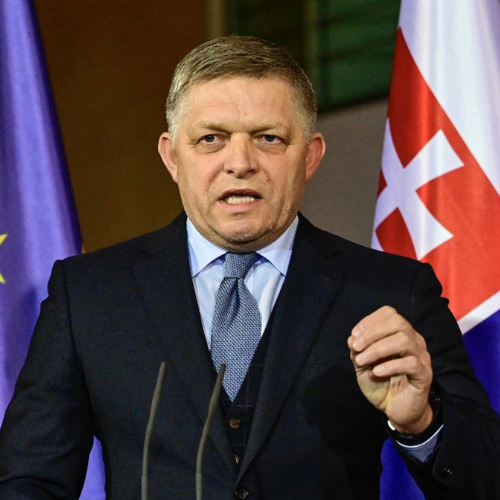Slovak Prime Minister Robert Fico has made a statement that is drawing attention across Europe. He said that he would support a referendum—a public vote—on removing sanctions placed on Russia. This statement was made during a weekend talk show and is causing debate both inside Slovakia and beyond.
Sanctions are penalties or restrictions used by countries to pressure another country. In this case, the European Union (EU) has imposed sanctions on Russia because of its war in Ukraine. These sanctions include trade limits, travel bans, and freezing Russian assets. Many EU countries believe this is the best way to make Russia stop its military actions.
But Robert Fico has a different view. He believes these sanctions hurt Slovakia more than they hurt Russia. According to him, the restrictions damage Slovakia’s economy and raise energy costs. That is why he said he would support a national vote to let Slovak people decide whether to keep these penalties or not.
Fertilizer Imports from Russia and Belarus Face Brutal EU Tariff Surge
He said clearly, “If such a referendum takes place, I will calmly support it.” This shows he is willing to go against many European leaders who still back the sanctions. His statement highlights his desire for the Slovak people to have a say in this important issue.
Slovakia’s Struggle with Energy and Economy
Slovakia is a small European country bordering Ukraine. Because of this location, it plays an important role in the current conflict. Slovakia is a member of both the European Union and NATO, groups that work together on defense and economy.
One of Slovakia’s biggest problems is energy. The country depends heavily on Russian oil and gas for homes, factories, and transport. When the EU placed sanctions on Russia, it made energy harder and more expensive for Slovakia. This worries Slovak families and businesses facing higher bills.
Prime Minister Fico has often said the sanctions harm Slovakia more than Russia. He believes the idea behind sanctions is good, but the results hurt regular Slovak citizens. This is why he supports letting people vote to decide whether to continue with the sanctions.
Many other European leaders disagree. They believe that staying united and keeping pressure on Russia is the best way to end the conflict in Ukraine. But Fico says his priority is protecting the well-being of Slovak people and believes lifting sanctions could help Slovakia’s economy.
Syria Ends Decade-Long Currency Printing Reliance on Russia; UAE and German Firms Enter Negotiations
A Different Voice in the European Union
Robert Fico’s comments differ from most European leaders. While the EU continues to consider more sanctions on Russia, Slovakia’s Prime Minister is moving in the opposite direction. He argues that adding new sanctions while trying to negotiate peace does not make sense.
His statement may increase debate within the EU, where decisions about sanctions usually need agreement from all member countries. Slovakia’s position could slow or complicate decisions on new sanctions.
Although Slovakia is part of a strong European alliance, it faces its own challenges. Being close to the war and relying on Russian energy puts the country in a difficult position. Fico’s call for a referendum shows he wants the people to decide the path forward.
This message from Slovakia adds a new layer to the crisis. While many leaders want to continue punishing Russia, Slovakia is asking if that approach is helping—or just making life harder for its citizens.


